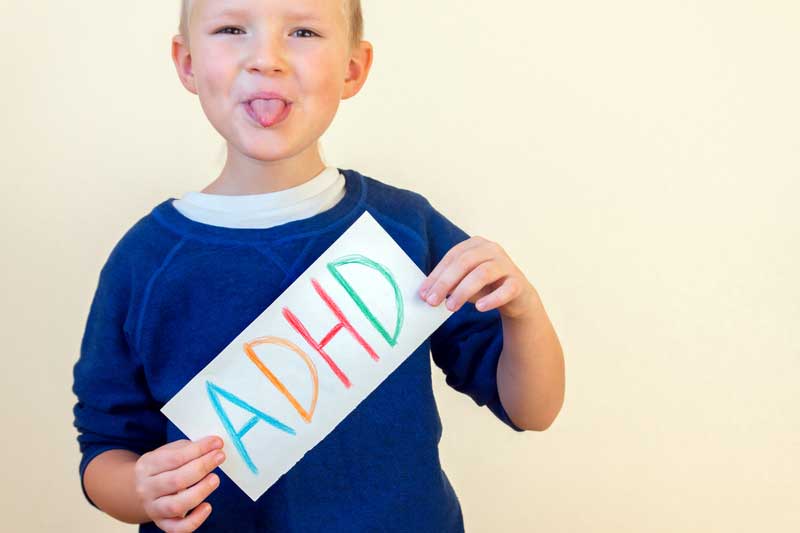Attention Disorders &
ADD Treatment
Do You or Your Child Struggle With:
Inattention:
- Often fails to give close attention to details or make careless mistakes in schoolwork, work or activities
- Difficulty sustaining attention in tasks or play activities
- Often does not seem to listen when spoken to directly
- Often does not follow through on instructions and fails to finish
- Often has difficulty organizing tasks and activities
- Often avoids, dislikes, or is reluctant to engage in tasks that require sustained mental effort
- Often loses things necessary for tasks or activities
- Is often easily distracted by extraneous stimuli
- Often forgetful in daily activities
Hyperactivity:
- Often fidgets with hands or feet or squirms in seat
- Often leaves seat situations where remaining seated is expected
- Often runs about or climbs excessively in situations in which it is inappropriate
- Often unable to play or engage in leisure activities quietly
- Is often ”on the go” acting as if driven by motor
- Often talks excessively
Impulsivity:
- Often blurts out answers before questions have been completed
- Often has difficulty waiting for a turn
- Often interrupts or intrudes on others
Executive Function:
- Encompasses variety of cognitive abilities that allow for impulse control, strategic planning, cognitive flexibility and goal directed behavior
- Not evident in all diagnosed with ADHD, but quite prevalent, could be present in other childhood disorders
- Lower academic achievement
- Likely to emerge early in life in children diagnosed with ADHD, tend to persist into adolescence and young adulthood
Concentration Deficit Disorder (CDD) or Sluggish Cognitive Tempo (Russell A. Barkley):
- Impairment of attention in hypoactive appearing individuals
- Appears first in childhood
- Comprises daydreaming, sleepiness, staring, “spaciness”, mental fogginess and confusion, motor dimension of slow movement, hypoactivity, lethargy, passivity
- Currently only exists as research entity, but dates back to Crichton era in 1798
- Associated with social impairment, primarily withdrawal
- At risk to internalize symptoms, especially anxiety and depression
- Distinct from ADHD, not a subtype, but can overlap
Our Unique Evaluation Takes an Individualized Approach and Takes Into Consideration:
- The developmental pathways necessary to develop efficient attention ability
- The Posner model (Images of the Mind) of attention from registration to pre-frontal cortex analysis.
- The corresponding impact of executive functions
- Particular impact of timing in visual and auditory attention
- Differentiation between initiation of attention vs. sustained attention
- The overlap of Dyspraxia in attention disorders
- Impulsivity and delayed gratification as a timing disorder

As occupational therapists we do not diagnose attention disorders, but we consider the impact of central nervous system development early in life as it relates to occupational function. So many clients are misdiagnosed and they frequently go through a plethora of different medications before they get to us. We do believe medicine plays a strong role, but we do not believe that every client has received the correct medical diagnosis to warrant the use of medications in the frequency that is occurring today.
Our Unique Program is Designed to Address:
- 7 developmental building block layers of attention
- From registration of information to analysis in pre-frontal cortex
- Impulsivity not as a “behavior”, but direct result of faulty “wiring”
- Inattention as a problem of registration of information
- Hyperactivity as a coping strategy at great cost to the client
- Re-organizing the developing structures, not only accommodating for them
- The stress and anxiety related to not being able to use cognitive ability to the fullest degree
- Intensive therapies of consecutive days as well as weekly sessions of 60 minutes each
- Programs can be completed at home or in the center
Are you ready to learn more about our unique and specialized approach? Schedule A Free Phone Consultation today!
Testimonial

Grateful mom – December 2019
Thank you for calling me to discuss our son’s progress. I was so happy to share it with you. We are so happy with how well he is doing and I thank you and everyone there again for the hard work with him this past summer.

Thank you for calling me to discuss our son’s progress. I was so happy to share it with you. We are so happy with how well he is doing and I thank you and everyone there again for the hard work with him this past summer. It is amazing to watch him continue to blossom and grow. He is running cross country, went to homecoming, and he is doing well in school without having to take any medication!
Again, I thank you and your staff for all of your help with our son. I thank you for caring about him and understanding how much we love him.
Sincerely,
